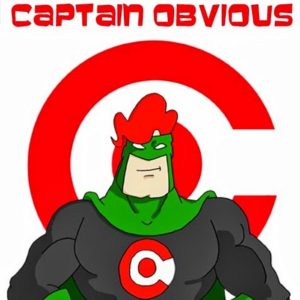I strongly believe in documentation. As a project manger, I feel that’s I am in the best position to properly capture the twists and turns along the project path. Given this, it makes the most sense for me to at least do the initial drafts of the documentation. There may be times where technical resources need to provide more details around how something is implemented, but for the most part I know enough to provide the starting point. This applies to both business documentation and ongoing production support documentation. I consider this core to what I do as a professional when I manage any project, at work or on volunteer initiatives. After quitting one job, I stayed on for another 3 months to hire my replacement and ensure the documentation was complete and up to date. Three years later, after some personnel turnover, I was asked to come back as a subject matter expert. I resurrected this documentation, refreshed it and used it as the basis for addressing the questions.
Despite all that, my biggest take away from last week’s DrupalCon was that my business needs process to scale. Yes, I know that it’s obvious. I do this all the time for my client work, ensuring that someone could take over my projects with relative ease. In those scenarios, someone taking over would find an archive of project artifacts previously provided to the customer, a site with the project details including other relevant reference sources. The outstanding work would be documented per the client request (i.e. task lists, service tickets, etc).
I have even started this for processes that are outside of my core competencies. If it was new, I needed to document the process for me and my partner so we could reference it, measure it and update it as required. It’s all the other stuff I haven’t documented. To continue the example of someone taking over my client work, while they have the tools, they won’t have the instruction guide. They won’t know how I go about a project. They won’t know how often I communicate with the client or in what form. There won’t be a guide for what to do the first day they step in.
It’s disturbing that the things that are most obvious to us are often the things we overlook the most. Regardless of how valuable we think we are, we have to plan for the unexpected. This could range from tragedy like sickness or death or joyful opportunities like extended holidays in locales with limited connectivity (yes, those places still exist). We limit ourselves when we only share our talents externally. We need to also apply our expertise to our broader roles and organizations. In my scenario, building these processes for how I do what I do will allow my company to grow. For yours, you are adding value not just to external customers, but also creating significant value for the organizations we engage with.
I hope after reading this you think about your core competencies and whether you are truly practicing what you preach.
